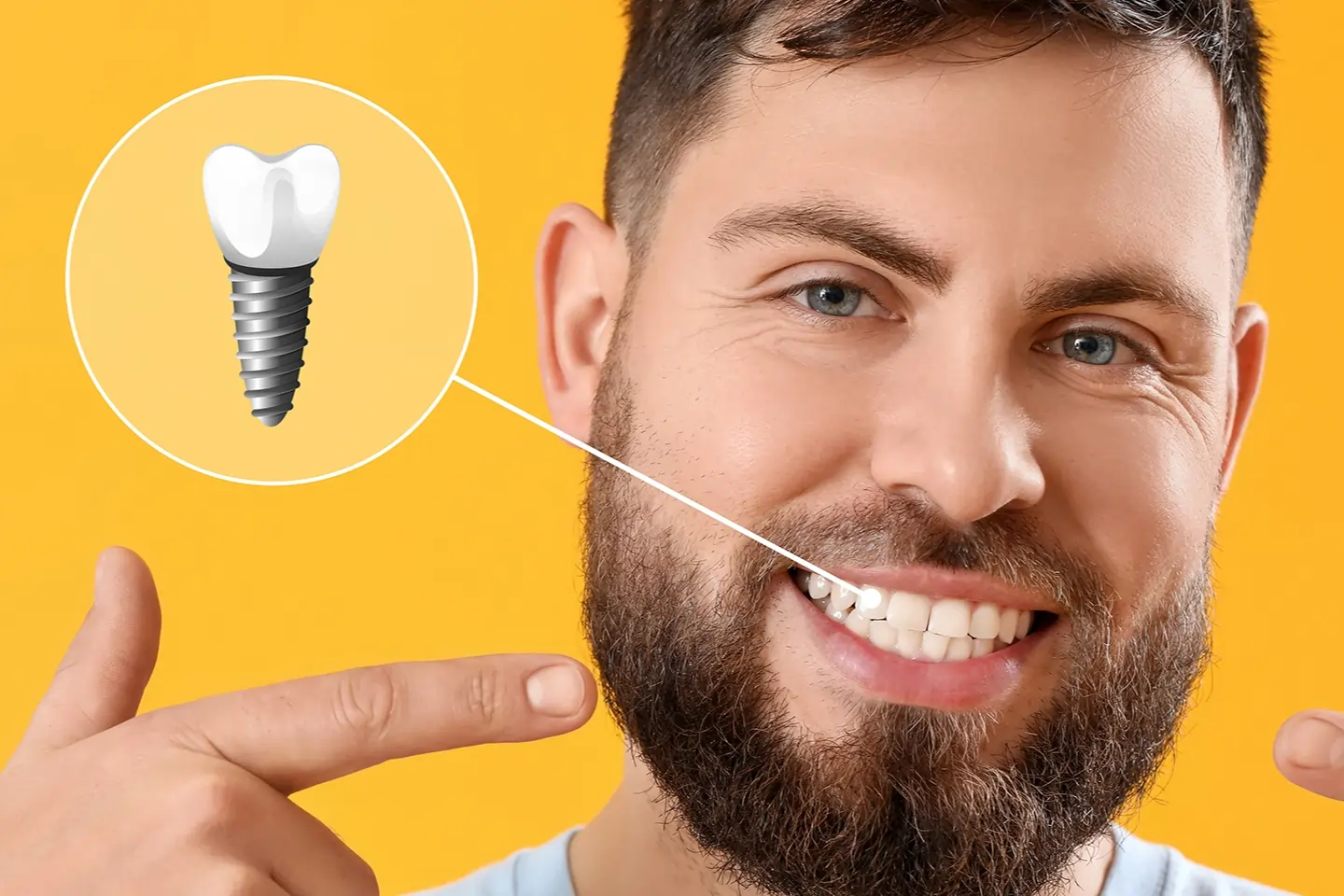
Many have found increased confidence, improved daily function, and better oral health through teeth replacement with implants or mini dental implants. We can help patients determine the most effective option for their needs. By learning more about possible replacement options during a consultation, we can help patients determine which option will give them the smile they desire. During a consultation, we will take the time to answer questions about the process. Everyone should feel confident when smiling in public, and no one should feel insecure about imperfections caused by missing teeth. Give us a call at (928) 428-1617 to learn more about implants and mini dental implants for teeth replacement.
To schedule your appointment, contact our team at (928) 428-1617 today.
You can achieve a more attractive smile, address oral health concerns, and improve overall mouth function through teeth replacement with mini dental implants. Mini dental implants are a type of dental implant used to support dentures, bridges, or crowns. Mini and traditional implants are available at Desert Bloom Dentistry in Safford and the surrounding area. Learn more about mini dental implants and what steps are involved during your consultation.
The greatest difference between mini implants and traditional implants is size: traditional implants range from 4–6 mm in diameter, while mini implants are 2–3 mm. Mini implant procedures are often less invasive than traditional implant surgeries.
Mini dental implants are commonly used to support dentures and prevent bone loss, but they can also support bridges or crowns. They work similarly to traditional implants but require less bone and a less invasive placement. Mini implants are ideal for patients with insufficient bone density for standard implants, narrow spaces, or those seeking a quicker, less complex procedure.
While bone grafting can strengthen the jaw for traditional implants, not every patient qualifies for grafting. Mini implants offer an alternative for patients with compromised bone, small teeth needing narrow restorations, or those desiring a full smile restoration in a shorter timeframe.
Mini dental implants offer several advantages over traditional implants:
Both traditional and mini dental implants stimulate the jawbone through osseointegration—the process where bone grows around the implant, anchoring it securely. This stimulation preserves bone volume and density, preventing the atrophy that follows tooth loss. Implants act like natural roots, sending signals to maintain healthy bone and surrounding tissues, thereby safeguarding against further tooth loss.
Traditional implants are often preferred for single-tooth replacements and cases where maximum durability is required. Mini implants excel in supporting dentures and bridges with less invasive surgery and quicker recovery. Each patient’s needs differ—bone anatomy, treatment goals, and personal preference all influence the ideal choice. Discuss both options with your dentist to determine which will best restore your smile.
Mini dental implants are durable and can last 5–10 years or longer with proper care, though they may not be as robust as standard implants.
Yes, mini implants generally require only a few weeks of healing compared to several months for traditional implants, making recovery quicker and more comfortable.
Absolutely. Mini implants can support bridges and dentures effectively, especially in narrow spaces where traditional implants may not fit.
Yes, mini implants look, feel, and function very similarly to natural teeth, with few dietary restrictions once fully healed.
Mini dental implants typically range from $500 to $1,500 per implant, depending on individual needs and complexity. Insurance coverage varies—check with your provider.
By visiting us as soon as possible, our team can help you choose the most effective implant solution for your smile. Instead of waiting and allowing your condition to worsen, we can provide tailored treatment options.